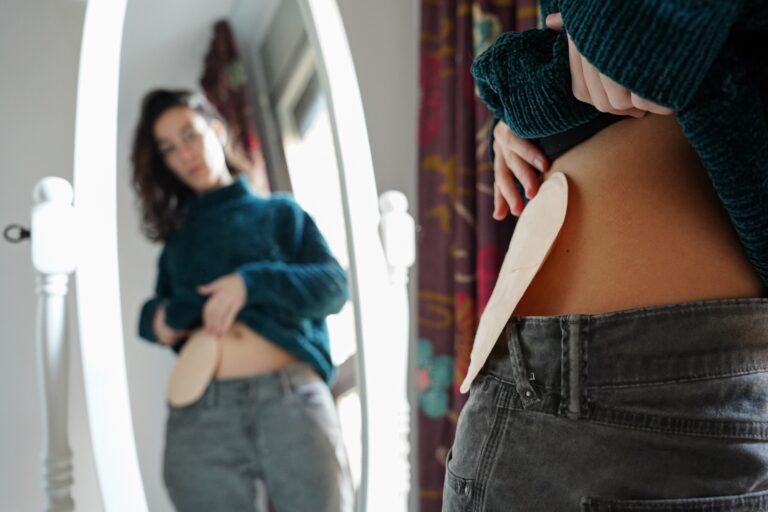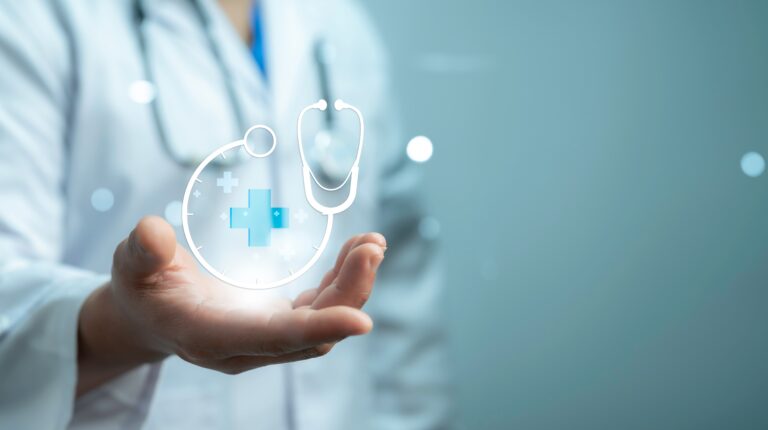Surrogacy in Personal Injury Claims – A Very Modern Ruling
Last year I wrote a blog entitled “Claiming the costs of surrogacy in an action for personal injury” which looked at the Court of Appeal ruling in XX –v- Whittington Hospital [2018] EWCA Civ 2839.
In the case of XX, the Claimant’s right to recover the costs of surrogacy following medical negligence was considered by the Court of Appeal.
As detailed in my previous blog and summarised below, the Claimant was successful in recovering the surrogacy costs however, this was appealed by the NHS Trust and the issue examined by the Supreme Court. Judgment has now been handed down and it contains some interesting points.
XX v Whittington Hospital: The facts
For a more detailed explanation of the facts please see my original blog, however, in summary the Defendant NHS Trust failed to detect signs of cancer in the Claimant and that and her subsequent treatment meant that the Claimant was unable to have children. The Claimant was able to harvest a number of her own eggs from which it was predicted she might achieve one or two live births through surrogacy. As the Claimant wanted a large family she also claimed the costs of using donor eggs. The Claimant wanted to undergo surrogacy in California where she could use a commercial arrangement and where legal parenthood can be transferred before birth. This was a more expensive option than undergoing surrogacy in the UK where commercial agreements are illegal and where the surrogate remains the legal parent until legal parenthood is transferred.
XX v Whittington Hospital [2017] EWHC 2318 (QB): Decision of the High Court
When the High Court first heard this case they decided that:
The claim for the expenses of Californian surrogacy had to fail; commercial arrangements were illegal in the UK and therefore awarding the costs was contrary to UK public policy.
The claim for the expenses of non-commercial surrogacy in the UK were recoverable but limited to the use of the Claimant’s own eggs. The loss suffered by the mother was the inability to have “her child” not “a child”. The use of donor eggs did not return the Claimant to the position she would have been in, if the negligence had not occurred.
XX –v- Whittington Hospital [2018] EWCA Civ 2839: Decision of the Court of Appeal
Both parties were given permission to appeal: the Claimant on the question of the recoverability of the American surrogacy costs and the use of donor eggs; the Defendant on the judge’s decision to allow non-commercial surrogacy costs.
The Claimant was successful in her appeal to recover the American surrogacy costs as the Court of Appeal found that public policy was no bar to recovery of these costs as the Claimant was not doing anything illegal.
The Claimant was also successful in her appeal to recover the costs of using donor eggs as the Court of Appeal found the legal landscape had changed in recent years, as had the attitudes towards surrogacy generally. The distinction between ‘own egg’ surrogacy and ‘donor egg’ surrogacy did “not stand up to analysis in our modern society”.
You will see from a reading of my previous blog that I welcomed that Court of Appeal’s decision, however, at the time of writing an Appeal was already on the horizon.
Whittington Hospital v XX [2020] UKSC 14: Decision of the Supreme Court
The NHS Trust was granted permission to appeal to the Supreme Court on the following issues:
- Are damages to fund surrogacy arrangements using the claimant’s own eggs recoverable?
The answer here was yes. These were reasonable costs.
- Are damages to fund surrogacy arrangements using donor eggs recoverable?
Again the answer here was yes. The argument at paragraph 46 of the judgment is particularly persuasive:
“It was argued for the claimant that this is no different from other artificial means of replacing what has been lost, for example, by having an artificial limb fitted to replace the one which has been amputated. It is not one’s own genetic material and it is not as good as a real limb, but it is the closest one can get to putting the claimant in the position she would have been in had she not been injured. Of course, the analogy is not exact, because the claimant is not being supplied with a replacement womb. But in many ways that is indeed what she is being supplied with, albeit temporarily, through the generosity of a surrogate mother who offers the use of her own womb”.
- In either event, are damages to fund the cost of commercial surrogacy arrangements in a country where this is not unlawful recoverable?
Again the answer here was yes. It was not contrary to public policy to award damages for the costs of a foreign commercial surrogacy so long as the proposed programme of treatments was reasonable and the foreign country has a well-established system in which the interests of all involved, the surrogate, the commissioning parents and any resulting child, are properly safeguarded.
As a solicitor who represents Claimants the fact that the answer to all three questions was ‘yes’ was a very gratifying result. From my perspective any Claimant who intended to have a family but is unable to bear children as a result of negligence should be awarded sufficient funds to undergo fertility treatment and surrogacy. It is also a positive step that a Claimant can claim for the costs of surrogacy to be carried out in another country if the Claimant feels that the UK’s system doesn’t meet their needs. Of course as highlighted by Lady Hale the caveat to any such claims, as with all claims, is that it had to be reasonable and you have to be able to produce evidence supporting the claims that are made. In XX the Claimant was able to give evidence outlining her pre-injury intention to have a large family and was able to explain why surrogacy in California was preferable to surrogacy in the UK.
However, whilst the judgment is undoubtedly a positive one for Claimants from the perspective of recovering damages, it also makes for interesting reading as a commentary in the way perspectives in this area have changed over the past 20 years.
One of the main thrusts of the Defendant NHS Trusts’ arguments in respect of the costs of donor eggs not being recoverable centred around a previous ruling in the case of Briody v St Helen’s & Knowsley Area Health Authority [2001] EWCA Civ 1010. This was a Court of Appeal case heard by Lady Hale. That case also involved a claim for surrogacy costs using donor eggs but it was found that: the use of donor eggs was not restorative of the claimant’s position before she was injured. Specifically Lady Hale commented at paragraph 25 that “Neither the child nor the pregnancy would be hers.”
After the Court of Appeal decision in XX NHS Resolution released a statement flagging their intention to Appeal that specifically referred to Briody and Lady Hale’s involvement in that case:
“This was an extremely sad case where, due to negligence, a young woman’s cancer progressed significantly and she is unable to give birth to her own children as a consequence. It is right and proper that she obtains appropriate compensation. However, it might be thought surprising that the Court of Appeal allowed recovery of damages for an arrangement which is expressly illegal in the UK. We are therefore seeking to appeal this judgment to the Supreme Court, whose President is Lady Hale – who gave the main judgment in the Briody case in 2002.”
In the 19 years between Briody and XX a lot has changed and upon reading the Supreme Court judgment you feel that this is something that Lady Hale is taking great pains to highlight. Specifically she stated at paragraphs 47 and 48:
“47. Not only that, as counsel had argued for Mrs Briody, a woman can hope for four things from having a child: the experience of carrying and giving birth to a child; the perpetuation of one’s own genes; the perpetuation of one’s partner’s genes; and the pleasure of bringing up a child as one’s own (para 24). Donor egg surrogacy using a partner’s sperm gives her two of those. And for many women, the pleasure of bringing up children as one’s own is far and away the most important benefit of having children. If this is the best that can be achieved to make good what she has lost, why should she be denied it?
48. This view is reinforced by the dramatic changes in the idea of what constitutes a family which have taken place in recent decades, referred to earlier. There are many different kinds of family these days. As King LJ pointed out in the Court of Appeal, “psychologically and emotionally the baby who is born is just as much ‘their’ child as if one of them had carried and given birth to him or her” (para 103). This is the experience of those judges who have the happy experience of granting parental orders. I would therefore hold that, subject to reasonable prospects of success, damages can be claimed for the reasonable costs of UK surrogacy using donor eggs.”
Of further note is that in her Supreme Court judgment Lady Hale commented at paragraph 45:
“In Briody, I expressed the view that this was not truly restorative of what the claimant had lost. It was seeking to make up for what she had lost by giving her something different (para 25). We need not concern ourselves with whether or not this view was technically obiter. In my view it was probably wrong then and is certainly wrong now.”
In the landscape of the year 2020 Lady Hale’s comments in Briody are quite jarring. As someone who has a nephew born of egg donation the idea that he is “a” child was certainly something that did not rest easy with me but we must bear in mind that that was then and this is now and the tenure of Lady Hale’s judgment is that the clock is not going to be turned back and that going forward Defendants must accept that these claims, if reasonable and properly evidenced, are likely to be successful.










